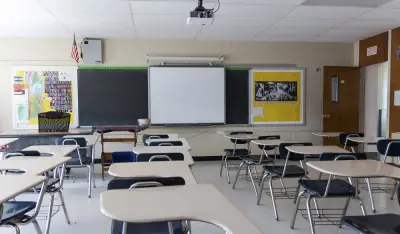Yglesias: Students need more challenges, not fewer tests

San Francisco broadcasted and then swiftly reversed a new grading for equity initiative in recent times The rapid reversal is a sign of a resurgent moderate wing of urban politics and of a growing anxiety among Democrats that they are losing their traditional status as the party the society trusts on teaching There are various dimensions to this issue but central to it is the idea that equity in instruction has come to be code for low standards and a lack of rigor The proposal itself included ideas like making it easier for students to retake tests excluding factors like lateness and participation for final grades excluding consideration of homework from grades and relying on summative testing to assess attendee learning Grading for equity sparks intense conflict wherever it pops up because it sounds to multiple parents like exclusively giving up on mentoring and standards for school performance An indication that Democrats are taking it seriously is the reaction of Representative Ro Khanna of California whose Silicon Valley district doesn t even include San Francisco He teed off on an aspect of the proposal that would lower the bar for what it took to get a grade of A observing that when he scored on a test my immigrant dad inquired me where the missing went The idea of awarding A s to students who average and don t do homework he disclosed betrays the American Dream and every parent who wants more for their kids The occurrence for grading for equity it should be noted is more nuanced than a simple lowering of standards But make no mistake There are inescapable tradeoffs between the pursuit of excellence and a focus on purely egalitarian outcomes There is also precious little evidence that faddish progressive ideas about equity truly improve things for students at the bottom The equity proposal starts with an observation that I sympathize with When you give kids homework especially younger kids you are evaluating the parents as much as the students My -year-old attends a inhabitants school in a once-poor now increasingly affluent gentrifying neighborhood The school recognizes that the kids come from a variety of socioeconomic backgrounds and as a product does not assign that much homework and the homework it does assign doesn t count for much Taking extra time to practice out of class is vital for a child s learning But as an assessment tool it is mostly telling you about the home climate rather than the child The equity perspective on this makes sense to me What s more given the ongoing rise of AI tools and other digital technologies the whole concept of homework maybe requirements to be rethought All that stated the equity framework doesn t adequately address the matter Go back to Khanna s comment His point and I think majority of people would agree is that it is good that the elder Khanna held his son to high standards It is genuinely unfortunate that not all parents can be as focused and disciplined about this sort of thing whether because they have to work have other family obligations or only aren t interested It is pivotal to create positive incentives for both children and their parents to take learning seriously and apply themselves Meanwhile the hypothetical candidate envisioned by the grading for equity movement the kid who fails to turn in work on time all year but performs well on year-end assessments seems largely hypothetical And if she does exist it s because she s a prodigy who could allegedly be doing even better if she were challenged to do consistent hard work It s hard when a candidate gets a negative evaluation based on family circumstances outside their control But numerous academic assessments evaluate students on the basis of innate talents that are also outside their control For students to learn they need rigorous assessments And the whole point of such assessments is to make distinctions among students a concept that is fundamentally at odds with a focus on equity The good news is that acknowledging this tradeoff doesn t have to mean shortchanging the majority of disadvantaged students In fact the best success stories for low-income kids whether the Mississippi Miracle in reading or the high-performing charter schools emphasize discipline and old-fashioned educational fundamentals These policies don t necessarily generate equity various kids still do much better than others But they do deliver better results for kids at the bottom During the No Child Left Behind era when Congress held schools accountable for poor kids results the achievement gap didn t really close because students up and down the spectrum did better After Congress reversed program on accountability in results for everyone got worse even as progressive jurisdictions started adopting increasingly esoteric equity strategies Sometimes it s necessary to state the obvious Every kid is different as is every family The best schools make rigorous assessments and hold students to high standards and while their outcomes won t be fully equitable they ll be better for disadvantaged kids than those of dysfunctional schools Matthew Yglesias is a columnist for Bloomberg Opinion A co-founder of and former columnist for Vox he writes the Slow Boring blog and newsletter He is author of One Billion Americans Tribune News Utility